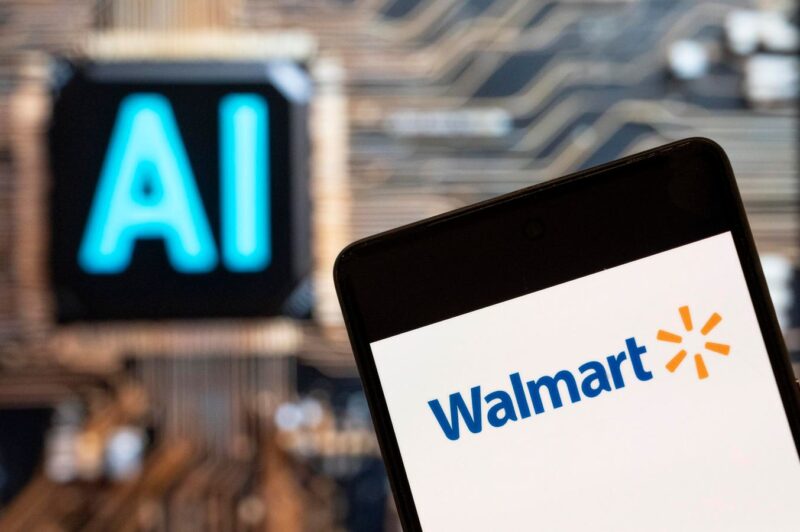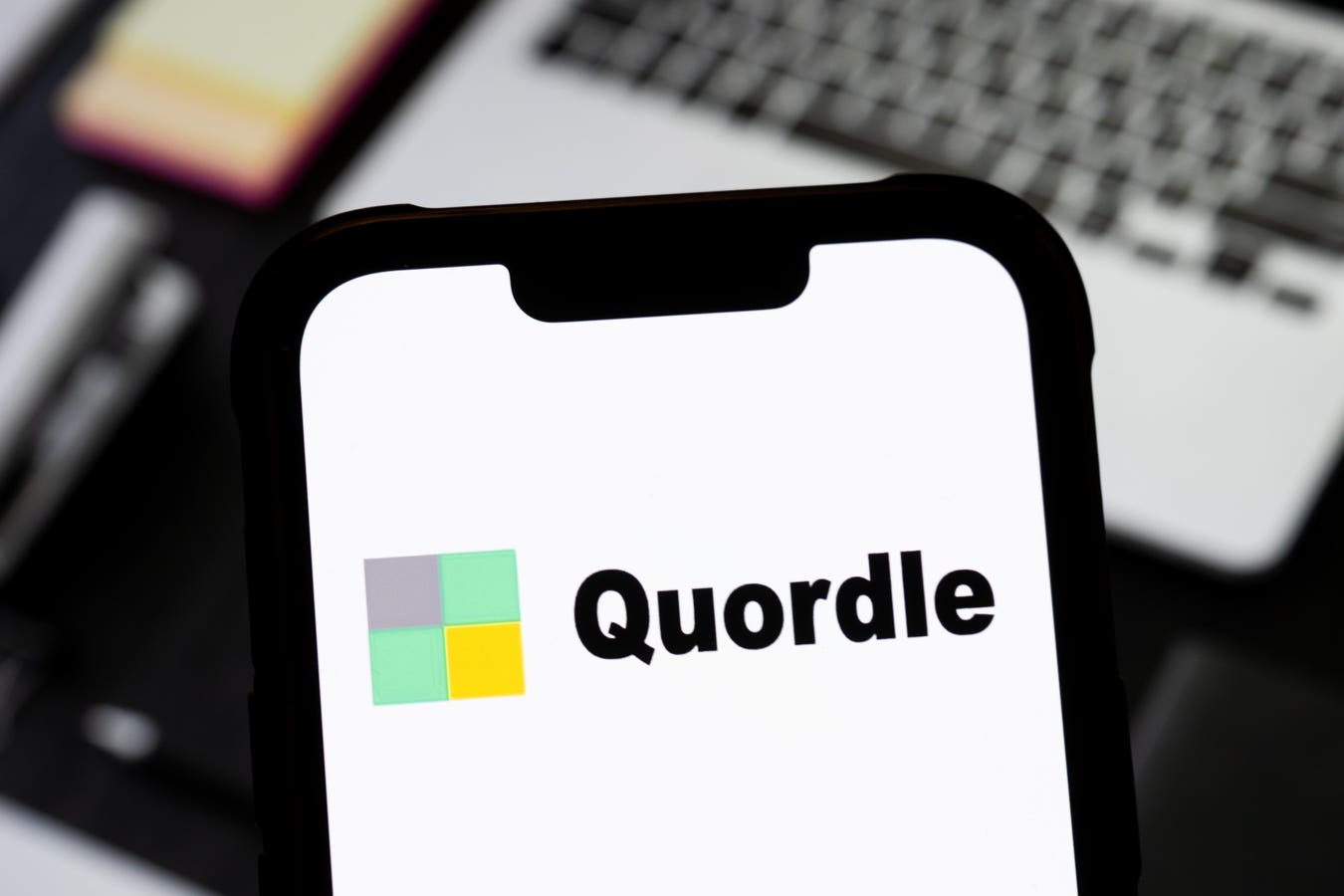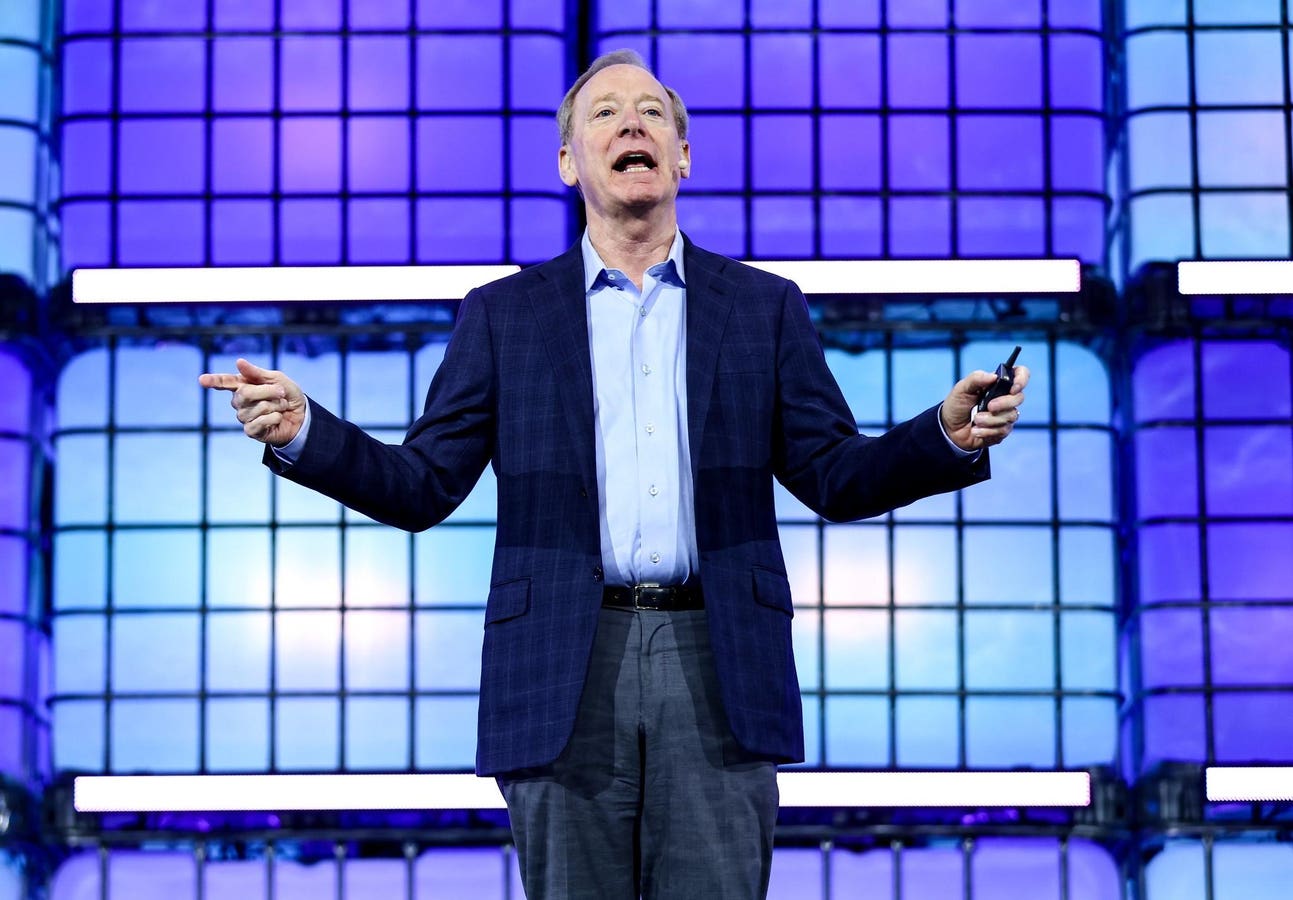Walmart’s new partnership with OpenAI brings shopping directly into ChatGPT, turning conversation into commerce and raising fresh questions about data privacy, AI ethics, and consumer trust.
SOPA Images/LightRocket via Getty Images
I had just stepped off the stage at the World Summit AI in Amsterdam, where I spoke about the ethics of speed, how the race to deploy artificial intelligence often outpaces our capacity to govern it. Around me, global leaders and technologists debated the same question: can innovation stay ethical when it’s moving this fast? Days later, Walmart and OpenAI made those debates feel suddenly, almost viscerally, real: you can now shop for Walmart products directly inside ChatGPT.
No search bar. No browser. Just a prompt and a purchase.
It’s a technological inevitability wrapped in a governance blind spot. When AI becomes the store, who owns the aisles, and who decides what we see?
Walmart and OpenAI: The Age of Conversational Commerce
The partnership between Walmart and OpenAI doesn’t just expand e-commerce; it redefines it.
Walmart’s new integration allows customers to browse, compare, and buy products from within ChatGPT’s interface. The system uses OpenAI’s generative model to translate everyday intents, “I need a quick dinner for four” or “Find me an eco-friendly detergent,” into shoppable recommendations and one-click checkout.
The promise is frictionless commerce. The risk is frictionless influence. AI collapses the space between decision and transaction, erasing the pauses where reflection and consent commonly occur.
This isn’t e-commerce anymore; it’s agentic commerce, where conversation itself becomes the transaction. When Walmart’s checkout lives inside OpenAI’s model, two ecosystems fuse: one optimized for attention, the other for extraction.
Walmart and OpenAI: Data, Consent, and the Hidden Contract
Behind this convenience lies a complex data exchange. Every query, preference, and purchase informs future recommendations. The boundary between “conversation data” and “commerce data” becomes porous.
Consumers rarely grasp what’s being shared or inferred, or whether that data resides with Walmart, OpenAI, or both. If “consent” means understanding and agreeing to what happens to your data, then modern consent is mostly theater.
We need a truth infrastructure: a digital scaffolding that preserves provenance, accountability, and user agency across data flows. Without it, convenience becomes a euphemism for surveillance.
Walmart and OpenAI: The New Gatekeepers
I spoke with Doug Llewellyn, CEO of Data Society Group, about what happens when AI stops being a back-end tool and starts steering front-end experiences that shape what consumers see, trust, and buy.
Llewellyn, who advises global organizations on responsible AI adoption, warned that the real risk isn’t the technology itself but the absence of governance.
“The companies succeeding with AI share three essentials: a clear executive vision, a governance framework that aligns the organization, and a workforce trained to operate confidently within it. Strong governance isn’t about compliance, it’s about confidence. It demands oversight, explainable models, and transparent data lineage, but most of all, accountability that sits with the organization deploying the AI, not the technology itself,” said Doug Llewellyn.
That’s the essence of the challenge facing Walmart and OpenAI. A conversational AI that mediates shopping decisions doesn’t just answer questions; it curates reality. It decides what appears first, what disappears, and what alternatives we never even see. In traditional search, ranking was visible; in generative conversation, ranking becomes invisible, and psychological.
“The true winners in agentic commerce will be companies that put consumer trust ahead of advertising dollars. Once promotional incentives dictate recommendations, trust erodes. Success will come from building AI that personalizes with integrity, where products earn visibility because they perform. In this new era, trust isn’t a feature; it’s the foundation,” said Jeff Sampson, Co-Founder of Prodigy Labs.
Llewellyn’s and Sampson’s points converge: accountability and trust aren’t just settings within the model; they’re cultures within the organization. The moment ChatGPT becomes the new storefront, neutrality turns from a technical feature into an ethical duty. Without transparency about how recommendations are generated, and whose interests they serve, AI could narrow choice while pretending to expand it.
Walmart and OpenAI: Regulation’s Blind Spot
At the World Summit AI, policymakers spoke in sweeping terms about “trustworthy AI” and “human oversight.” Yet the Walmart–OpenAI partnership exposes how quickly real-world use cases can outpace regulation.
Under the European Union’s AI Act, a system like this might qualify as high-risk, subject to transparency and accountability requirements. In the United States, where regulation remains fragmented, enforcement falls among multiple agencies: the FTC for advertising, the CFPB for financial transactions, and the FCC for speech. None is built for conversational agents that both persuade and transact.
Liability is equally murky. If ChatGPT recommends a misleading or defective product, who is responsible: the model provider, the retailer, or the brand? Policy hasn’t yet mapped that chain of custody.
Walmart and OpenAI: The Human Layer
Every revolution in retail, from department stores to social commerce, has promised empowerment and delivered new dependencies. What’s different now is that the intermediary isn’t human. AI agents don’t just remember preferences; they predict desires. They shape the very conditions under which choice occurs.
In Amsterdam, Sarah Porter, founder and CEO of InspiredMinds! and the force behind World Summit AI opened the summit with a call to align innovation with responsibility. The message landed: governance must keep pace with deployment. Walmart’s integration makes that concrete. The technology works. The question is whether our frameworks for truth, consent, and fairness do.
Porter’s advocacy work, from supporting Afghan girls’ robotics to founding STEAM schools via Ada-AI, roots her ethic in access. It’s a reminder: if Walmart × OpenAI is to be just, the new architecture must empower, not exclude.
Walmart’s integration makes that challenge tangible. The technology works. The question is whether our frameworks for truth, consent, and fairness do.
Walmart and OpenAI: Building the Ethical Checkout
If we’re serious about responsible AI commerce, friction can’t be treated as failure—it’s the proof of consent.
To build an ethical checkout, a few principles must harden into policy:
- Ranking transparency: Users must know when and why a product is promoted.
- Data sovereignty: Purchase and preference data should remain under consumer control, not platform custody.
- Algorithmic audits: Independent evaluators must test these systems for bias, manipulation, and safety.
- Liability clarity: Accountability cannot vanish into the model.
- Right to neutrality: Users should be able to toggle between “personalized” and “neutral” modes to preserve autonomy.
These aren’t theoretical ideals; they’re operational necessities for trust in the next phase of digital life.
Walmart and OpenAI: The Final Transaction
Walmart and OpenAI may have built the future of shopping, but they’ve also built the scaffolding for a new kind of governance, one negotiated not in parliaments, but in prompts. Every chat that ends in a purchase is a quiet act of trust, exchanged without comprehension. The mall no longer has walls; it speaks.
Amazon once attributed roughly a third of its sales to its recommendation engine, an early signal of how predictive models could quietly shape consumer behavior. A decade later, McKinsey’s research shows that companies using advanced personalization now generate 10–15 percent more revenue, with leaders seeing up to 25 percent. The economic logic is unmistakable: when the interface anticipates intent, influence becomes infrastructure.
Unless we decide what fairness, transparency, and consent mean inside that conversation, the system will decide for us.
Walmart and OpenAI are building a world where every choice feels effortless. But frictionless systems, however elegant, test the boundaries of meaning, and democracy begins in that resistance.









